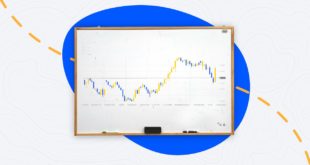Reverse mortgages are a type of home equity loan for homeowners 62 years and older.
If you have been thinking about getting a reverse mortgage, here are 9 new reasons to take a fresh look at the program.
1. You Are Protected in a Natural Disaster
Floods. Fires. Earthquakes. It has been a rough few months. And, with all of the natural disasters this year, many people have asked what happens to your home if it is damaged and you have a reverse mortgage on it.
When you get a reverse mortgage, you are required to carry adequate homeowner’s insurance. As such, you are generally well covered and the insurer will pay to rebuild your home and provide compensation for a place to live during construction. Furthermore, if you choose to rebuild, then your home will be worth more than it was before — potentially increasing your equity stake.
2. Your Generation Controls $6.42 Trillion in Home Equity — Why Not Cash In?
If you are 62 and over and own a home, you are part of a generation with unprecedented housing wealth — $6.42 trillion worth to be exact.
And, this wealth has grown quite a lot recently. Real estate research firm CoreLogic reported that homeowners saw an average of $13,000 in home equity gains in the last year alone.
Bigger home values mean that more money is available to you from a reverse mortgage. Find out how much you are eligible to borrow.
3. More Older Homeowners Are Struggling to Pay Off Mortgages — Ease Your Stress!
Despite the tremendous housing wealth, today’s older homeowners are trailing previous generations in paying off their mortgages. Only around 50% of homeowners aged 65-69 were mortgage free in 2015.
Furthermore, evidence suggests that housing debt is straining the retirement finances of many baby boomers. A reverse mortgage is one way to eliminate ongoing mortgage payments which can really reduce financial stress.
4. Costs Are Forecast to Rise
Making ends meet is never easy. But, economic forecasts suggest that it is only going to get harder and harder — especially for retired people.
Inflation is supposed to go up, making it more difficult to afford everyday expenses. Worse yet, healthcare costs will continue to rise even faster than inflation.
5. Ben Carson and the Federal Government (HUD and the FHA) Are Very Committed to this Program
Ben Carson, Secretary of the Federal Department of Housing and Urban Development (HUD), recently implemented measures to make sure that the reverse mortgage program could continue as a viable program. In a statement, Carson said, “We’re taking needed and prudent steps to put the HECM program on a more sustainable footing.”
Last July, in remarks at a convention in Florida, Carson praised the reverse mortgage program and emphasized his desire to help homeowners age in place: “This is a top priority for my department: To give seniors more opportunities, more alternatives, more choices, and, if desired, to help more people age in place.”
6. Some Mortgage Insurance Premiums Are Going Up, Others Down
Mortgage Insurance Premiums (MIPs) are fees that borrowers pay on most home equity loans — including reverse mortgages.
MIP Upfront Costs: If you plan on cashing out on a lot of your eligible home equity all upfront, then the closing costs for a reverse mortgage are lower now than they were last year. For most other borrowers the upfront costs will be higher.
Ongoing MIP Costs: These ongoing costs have come down for everyone. It used to be that borrowers would pay 1.25% of their outstanding loan balance each year. This fee is being significantly reduced to .5%. This may translate to thousands of dollars in savings each year for an average reverse mortgage borrower.
7. Changes to Principal Limit Factors
The Principal Limit Factor is the maximum amount that a borrower can ever take out from their home equity. Recent changes mean that borrowers will now be able to access less money overall.
However, Forbes Magazine believes that the lowered Principal Limit Factor will “encourage lenders to offer lower lender margins in order to maximize principal limits for borrowers. Ultimately, this could bring down the cost for the borrower.”
8. If the Stock Market Crashes, You Have a Back Up
Many financial experts are predicting that we are in another bubble and that we might experience some kind of stock market crash within the next year.
If you have money in the markets, you might explore the idea of getting a reverse mortgage line of credit that could be tapped if you don’t want to have to sell investments at a low point.
9. Borrowers Are Happy with These Loans
Studies indicate that more than 90 percent of all households who have secured a Reverse Mortgage are extremely happy that they got the loan. People say that they have less stress and feel freer to live the life they want.
Is a Reverse Mortgage Right for You Right Now?
Is a reverse mortgage something you should consider? See for yourself: try the reverse mortgage suitability quiz or estimate your loan amount with a reverse mortgage calculator.

Estimate Your Reverse Mortgage Loan Amount
RECOMMENDED FOR YOU
 #Bizwhiznetwork.com Innovation ΛI |Technology News
#Bizwhiznetwork.com Innovation ΛI |Technology News







